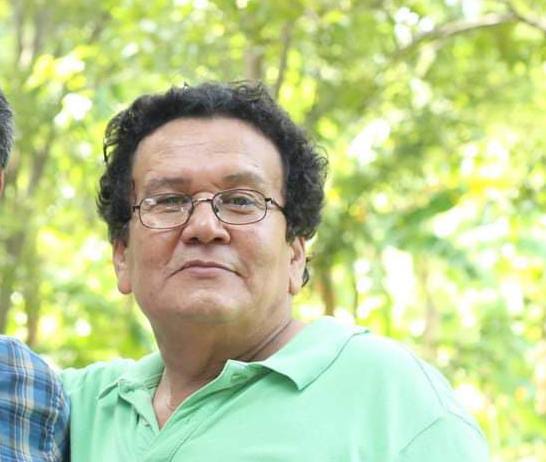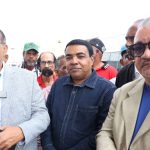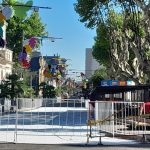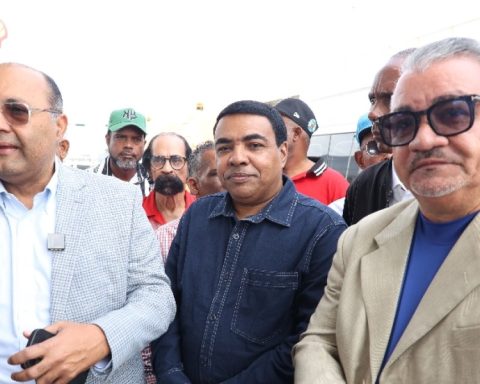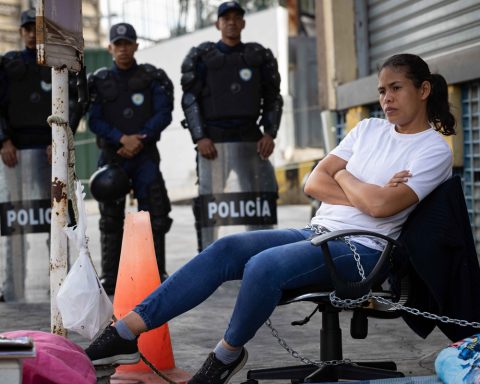The economist Harry Chávez, captured by two plainclothes subjects on November 6, on the eve of the voting in Nicaragua, was accused by the Public Ministry of violating Law 1055 or “Sovereignty Law” and the Special Law on Cybercrimes, arguing alleged publications on their social networks related to the Reborn Law –approved by the United States-. However, his family denies the facts and points out that “there is no evidence” against Chávez, who worked at the assaulted Institute for Democracy and Development (Ipade), but was already retired when the government took over these facilities.
Chávez, 64, responded to a knock on the door of his house by two men around 7:20 p.m. on November 6. The subjects identified themselves as police officers and informed him that he had to accompany them to the Directorate of Judicial Assistance (DAJ), known as “the new Chipote” to ask him some questions, and later, he would return. However, he was imprisoned, “arbitrarily and illegally, without showing any arrest warrant,” says his family, who are demanding his freedom.
The day after his arrest, his family members searched for him in “el nuevo Chipote,” but denied that he was at the DAJ, despite the fact that plainclothes officers assured that they would take him to that police complex. The economist was confined in District I of the Police and there he remained for almost a month, incommunicado from his relatives. However, they respected her right to the delivery of food, juices, and water.
However, on December 1, Chávez was transferred to the Jorge Navarro National Penitentiary System, known as “La Modelo”, after a preliminary and initial hearing weeks ago. A lawyer was present and learned about the crimes against her. However, the electronic system of the Judiciary does not show the accusation, assured a relative who spoke with CONFIDENTIAL requesting not to be identified to avoid further retaliation.
The economist “is very concerned and confused” because the accusation against him “does not make sense and there is nothing,” he even said that the day he was arrested they did not know what to do with him, added the relative.
Harry Chávez, 64, has dedicated his personal and work life to working for democracy. Since his abduction, he has not had communication with his family and his integrity could not be verified. He has been transferred to La Modelo Prison. #libertadYa #Only the people save the people #Alert pic.twitter.com/qGiyvASZdu
– Articulation of Social Movements (@ArticulacionNic) December 1, 2021
Until 2017 Chávez held the position of coordinator of the Electoral Program of the Institute for Development and Democracy (Ipade), whose legal status was canceled along with eight other organizations in December 2018. He was already retired when the institution’s facilities, as well as another dozen oenegés were taken by the Police.
Harry Chávez had received no threats
Once retired, he sometimes did independent consultancies. He was never part of any opposition organization and he had not received threats or monitoring from the police or civilians, indicates his family member, who assures that everyone is very concerned about him, especially because he is a 64-year-old person.
Although he does not suffer from chronic diseases, his relative assures that “he was having back problems with a boil”, and they fear that it could be complicated by the sanitary conditions and an infection could develop.
Until November 26, the Ortega regime had arrested 27 Nicaraguans, whom it kept without access to family and isolated visits, according to the Mechanism for the Recognition of Political Prisoners. Thirteen of the detainees were charged under the “Sovereignty Law” and the Special Cybercrime Law.
?Families of political prisoners detained on November 6 and 7 and who were in the police delegations, have informed the @cenidh that these were transferred to the SP Jorge Navarro and La Esperanza.
FOLLOW THREAD ?
– Cenidh (@cenidh) December 1, 2021
More citizens are transferred to “La Modelo” and “La Esperanza”
The Nicaraguan Center for Human Rights (Cenidh) denounced this Wednesday that the “political prisoners” detained between November 6 and 7, were transferred from the police delegations to “La Modelo” and to the women’s prison, “La Esperanza”.
“We condemn this action by the Ortega-Murillo regime, which shows its decision to deprive them of their liberty, being innocent,” the organization said through its Twitter account.
They qualify the decision as “abuse of authority” because two categories of inmates remain in prisons: processed and convicted. However, the judicial processes against these Nicaraguans remain hidden from the digital system of the Judicial Power, therefore “there is no record” of the cases.
Among the detainees who were transferred, and their cases are publicly known, are the young woman Samantha Jirón Padilla, who belongs to the Blue and White National Unit (UNAB), and was arrested on November 9 by plainclothes policemen, and Eveling Pinto, 62, captured on November 6 at her home in Managua.
